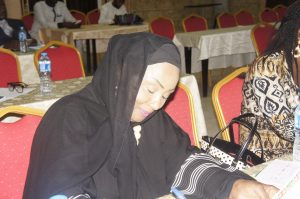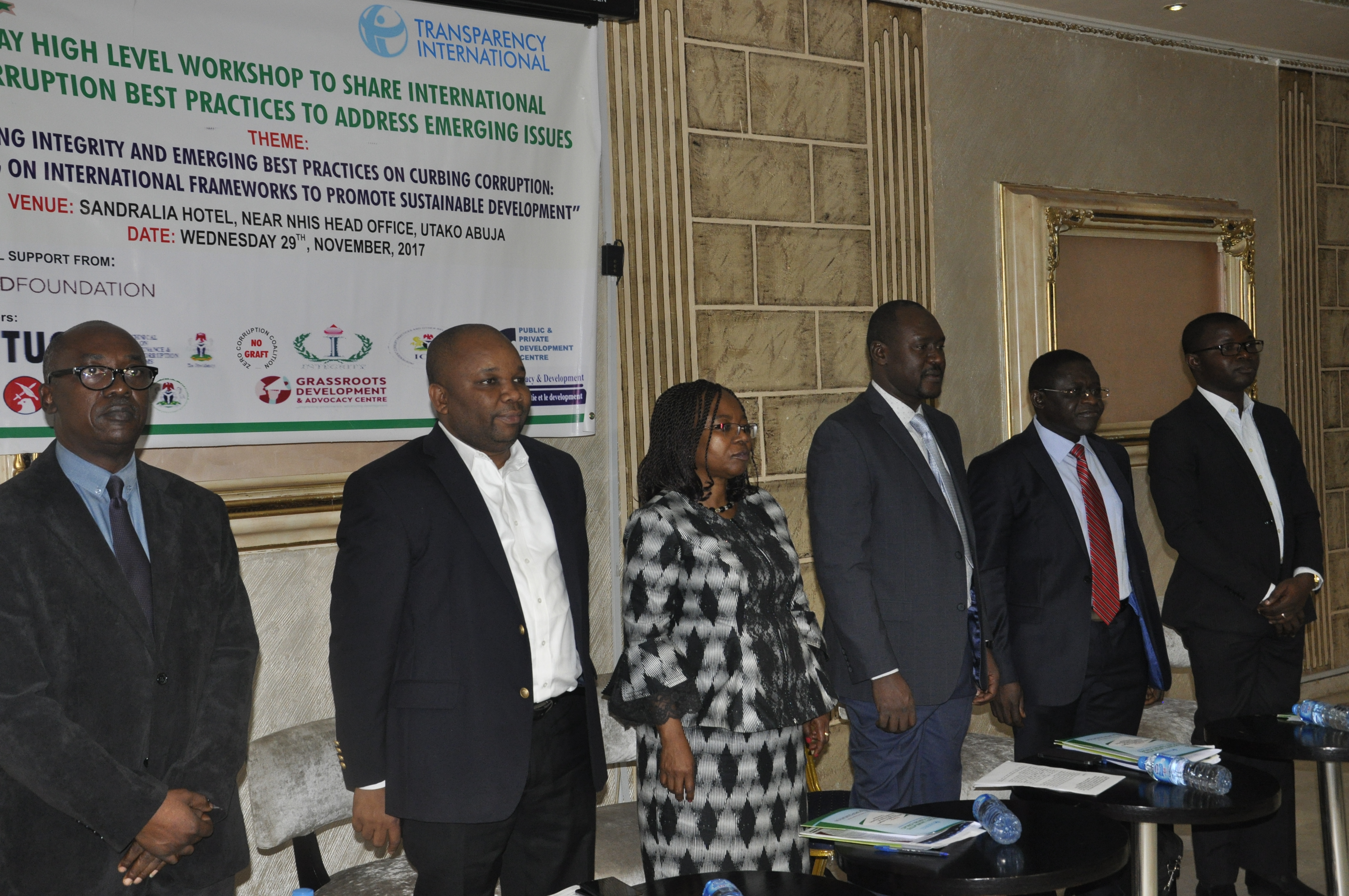International anti-corruption best practices came under scrutiny today at a Civil Society Legislative Advocacy Centre’s workshop to that effect. Participants from different shades on the topic articulated positions reflecting their understanding of the issue.

Hajiya Hadiza Kangiwa, a Development Consultant and Member of Board of CISLAC
Auwal Musa Rafsanjani, Executive Director of CISLAC had told the gathering that the workshop was to share international best practices with a view to addressing emerging issues towards building integrity. That is by leveraging on international frameworks to promote sustainable development in Nigeria. Corruption, he said, threatens everything dear to democracy and it was important for stakeholders, leaders of thought and members across sectors to rub mind, share opinion and come up with a roadmap on the way forward.
Mr Segun Adesanya who represented the Presidential Advisory Committee Against Corruption, (PACAC), rated Nigeria, Egypt and South Africa in that order as the highest sources of illegal financial flow in Africa. Stressing the advisory and expert pressure focus of the committee, he said in the case of Nigeria, the greatest leak point is oil. He decried bribery and money laundering as key features of illegal financial flow.
Uche Igwe of Open Government Partnership, (OGP) decried the over-simplification of the corruption problem, reducing it to public sector bribery, leading to a whole lot of remedies that he says fail to address the issue. He is equally worried about remedies cooked in advanced industrial societies and exported to the Southern hemisphere. The problem with that, for him, is the contextual baggage that blocks understanding and workability of such recipes. Igwe equally identified over-politicisation of corruption war into a potent weapon even as corruption remains an activity exclusive to those in power as alleged by the speech of the first coup announcer in 1966.
Discussion on corruption even at the level of the civil society in Nigeria is, however, still soaked in tension between with no more than legal frameworks, techniques, formulae and fairy tales outside the larger political economy of corruption. But in between the problem solving approach and the rather radical persuasion are the pragmatic discussants who argue that technicism could work but “we have to do our work properly” or pleas, urging and placating would not recover assets, for example. Assets recovery is a corner stone of the anti-corruption war

Barr Emmanuel Akomaye and Mr Segun Adesanya of PACAC at the workshop
Speaking on that angle, Barrister Emmanuel Akomaye, immediate past Executive Secretary of the Economic and Financial Crimes Commission, (EFCC), said the countries in the Western hemisphere have their own grounds for releasing looted monies. Asset recovery is difficult at the international and domestic level, he said, an indirect reference to the international political economy of the corruption phenomenon. It is worse for us once the asset has crossed the border, he said, adding how difficult some countries find it difficult to oblige.
The question of who is a victim in a corruption case involving nationals or companies with national roots in some countries. He mentioned a particular country which insists on returning assets only “under appropriate circumstance”, a phrase he said a phone call from the president of that country to even a clerk in the relevant bureaucracy would change nothing.
The issue, therefore, is for Nigeria to stop outflow because, except Switzerland, other countries assert themselves when it comes to returning loots.
Speaking on measuring corruption, the lawyer said it is difficult to do so. Is it when a thousand persons have been jailed? Is it when there have been change of attitude towards corruption? Or, is it the quantum of assets recovered during a certain period?
Who owns recovered assets when the asset in question originally belongs to a state in Nigeria? Is there a paradigm of anti-corruption struggle in the Nigerian civil society? How is re-looting to be blocked? What about the statement of an EFCC Head that the commission cannot fight corruption?
It seems to be a long way still in the degree of deeper global context of the phenomenon of corruption. Hence the quick, largely celebratory draws on corruption by practitioners of anti-corruption wars, mostly in government and the civil society. But as most people admitted, it is a long way from yesterday. Where and how far current discourses and practices in anti-corruption war would take the country is the great debate.




























